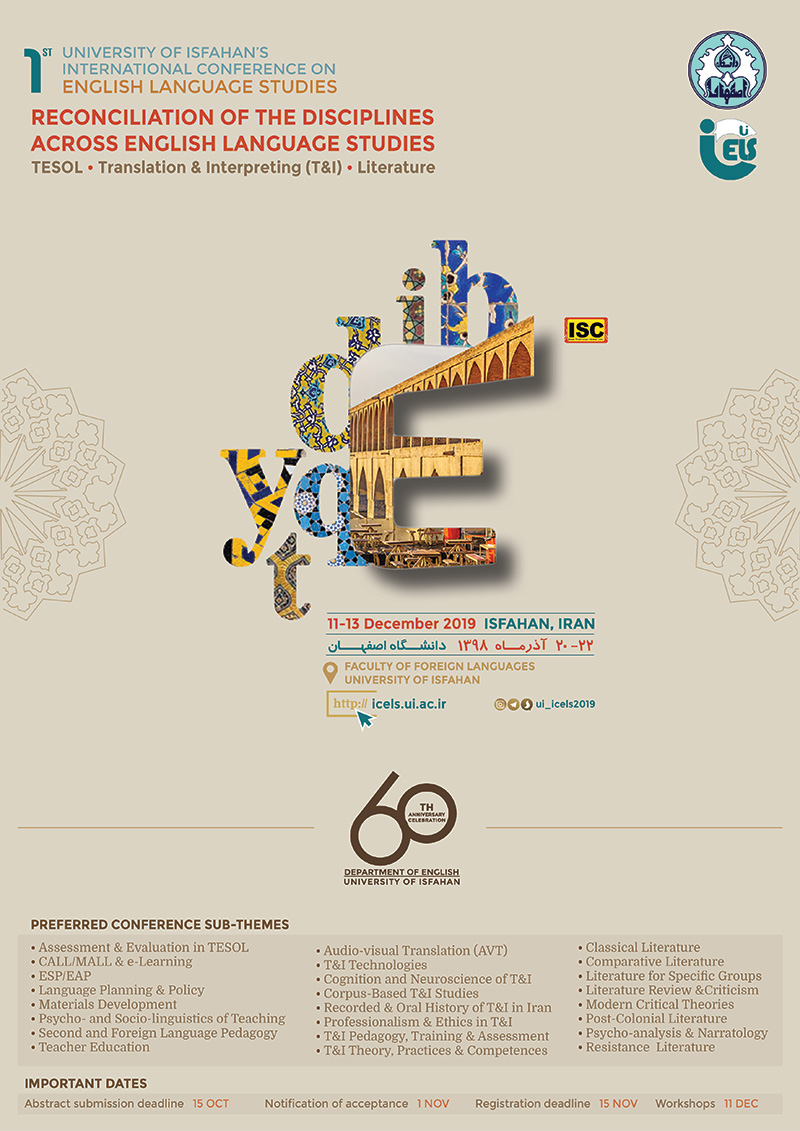
Translator’s patriotism and re-creating the image of homeland
نویسندگان :
Arezou Nezam ( Ferdowsi University of Mashhad ) , Masoud Khoshsaligheh ( Ferdowsi University of Mashhad )
چکیده
Drawing on Narrative Theory, the present article is an attempt to investigate whether translator’s patriotism impacts on the way they render subtitles for a movie that tells an antagonistic narrative of their homeland. Given their anti-Iranian representation of two narratives (i.e., a historical and a contemporary), two feature films, namely, 300 and Argo, were selected. The Farsi fan-subtitles will be qualitatively analyzed to determine which narrative (i.e., the original narrative which is a result of the translator’s ethical impartiality, or a divergent narrative which is a result of translator’s nationalism) will prevail as a strategy taken by Farsi fansubbers. It is expected that the findings reveal conscious and deliberate manipulations in the Farsi translations of the subtitles. The translator, as a patriotic and more visible mediator, is expected to adopt a strategy that re-narrates – and this time correctly – the true story of their homeland.کليدواژه ها
Narrative theory, fansubbing, patriotism, mediation, visibilityکد مقاله / لینک ثابت به این مقاله
برای لینک دهی به این مقاله، می توانید از لینک زیر استفاده نمایید. این لینک همیشه ثابت است :نحوه استناد به مقاله
در صورتی که می خواهید در اثر پژوهشی خود به این مقاله ارجاع دهید، به سادگی می توانید از عبارت زیر در بخش منابع و مراجع استفاده نمایید:Masoud Khoshsaligheh , 1398 , Translator’s patriotism and re-creating the image of homeland , اولين کنفرانس بين المللي مطالعات زبان انگليسي
دیگر مقالات این رویداد
© کلیه حقوق متعلق به دانشگاه اصفهان میباشد.
